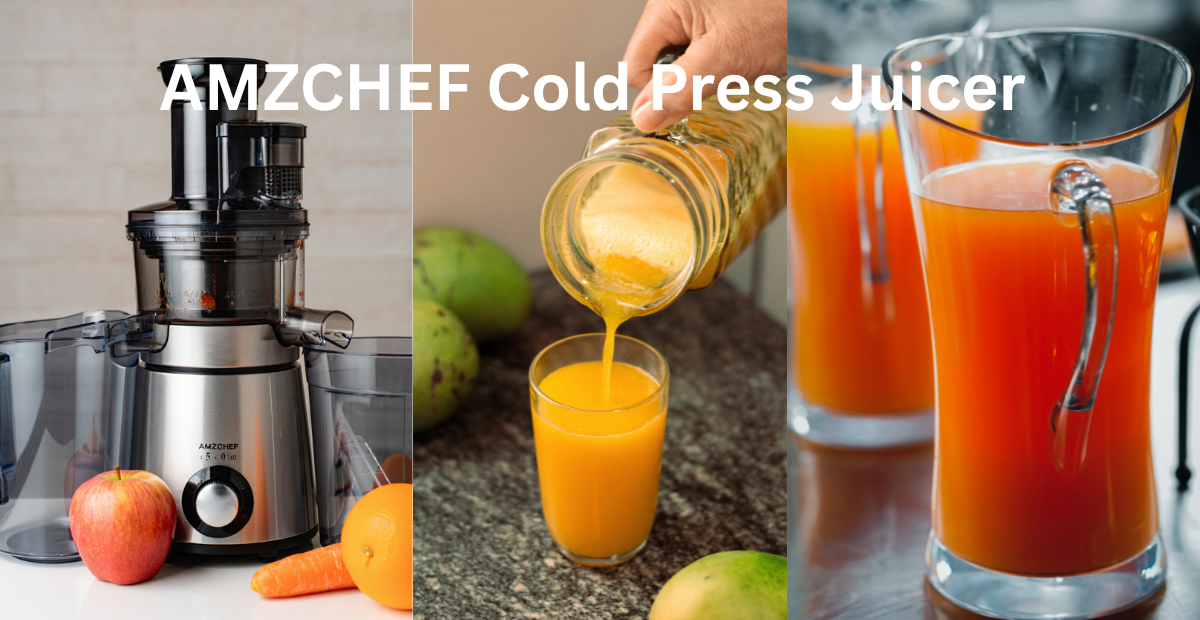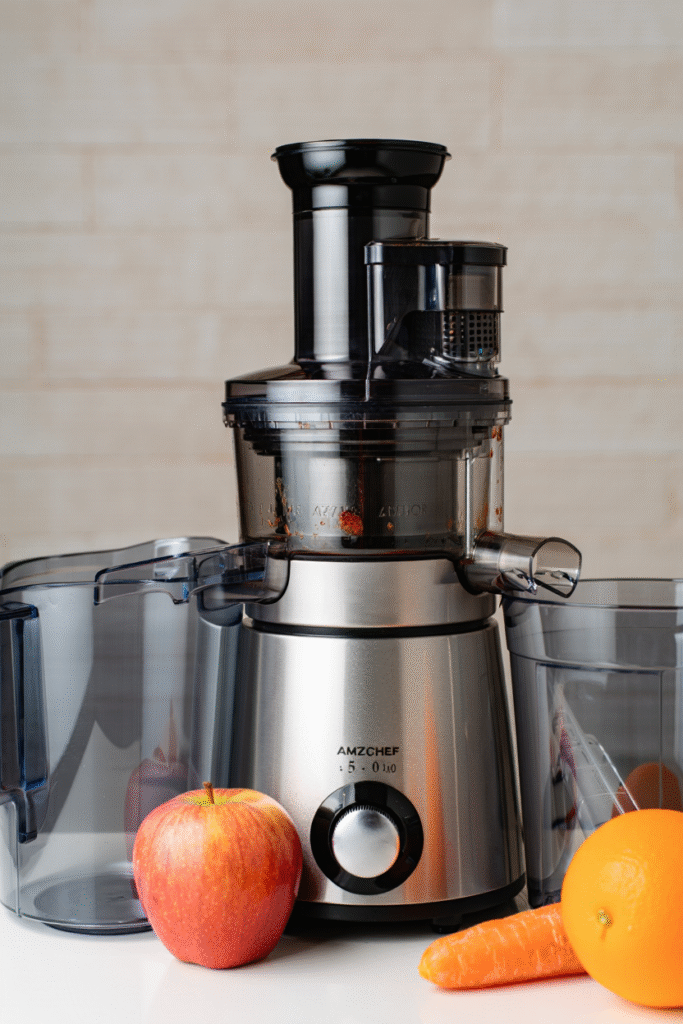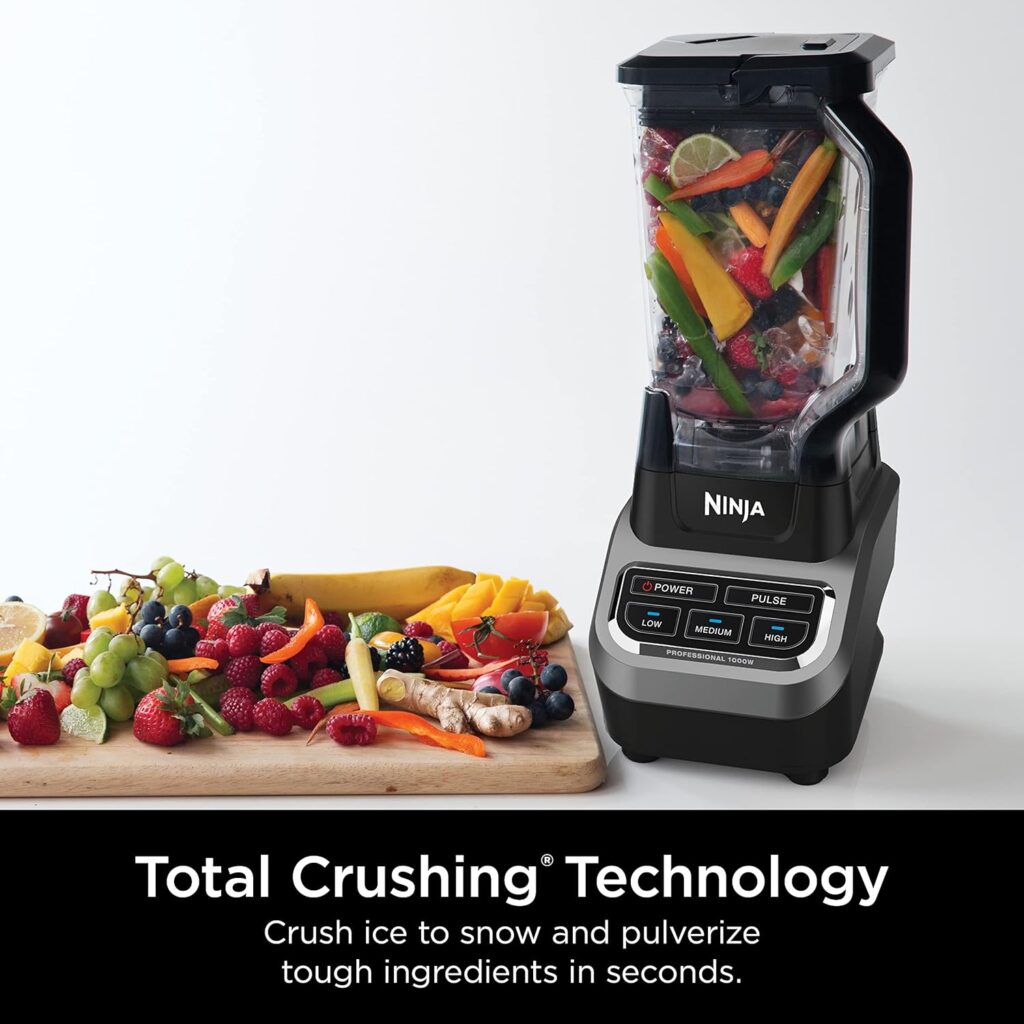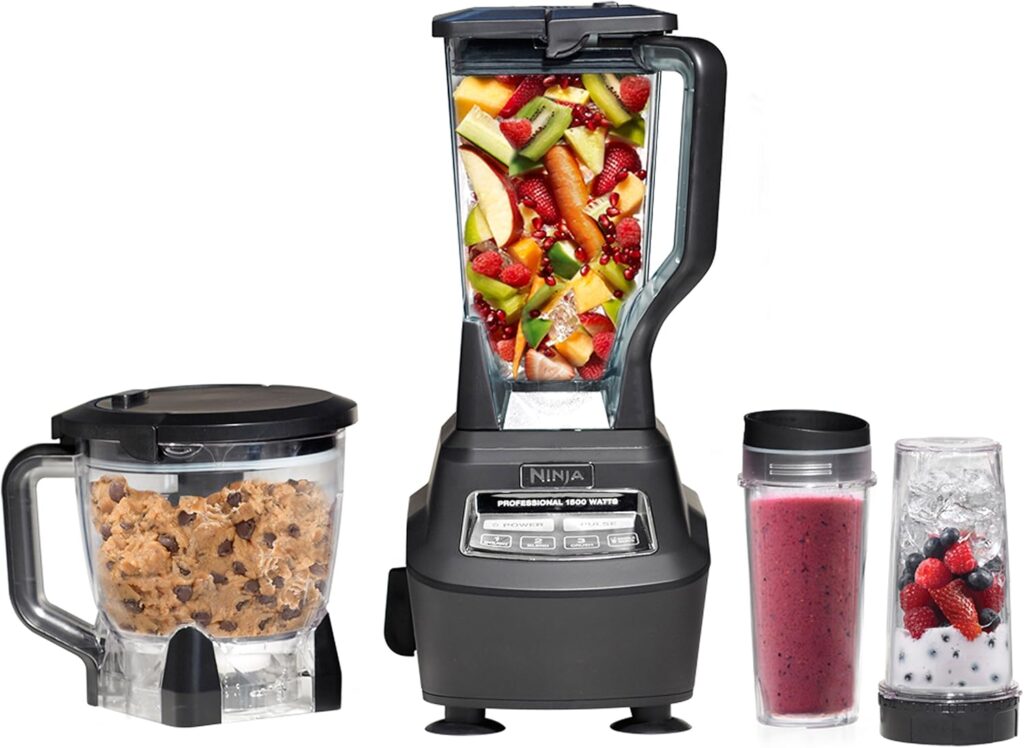In this AMZCHEF cold press juicer review, we have covered many points like juicer type, juice quality, and juice yield.
Rating: 4.5 Out Of 5 Star
First, What is Juicer?
There are two types of juicers,
Centrifugal juicers: Use Fast-Spinning blades (6000-18000 RPM) that generate heat and Oxidation.
Cold press juicers (slow juicers): These use slow-rotating mills (typically 40-80 RPM) to crush and press fruits and vegetables.
When choosing or evaluating a cold press juicer (slow juicer), the most important points to consider are:
Juice Quality
The specialty of juice is that after extraction, it is highly nutritious, fresh, delicious, and has the right color; it is an excellent juice.
Key Factors That Affect Juice Quality in Cold Press Juicers:
Maintain nutrition:
Cold press juicers operate at slow speeds and do not produce heat, so they preserve fragile nutrients like; Vitamin A, Vitamin B, Vitamin C, and Enzymes.
At least oxidation:
Because slow juicers don’t whip air into the juice, oxidation is reduced. Less oxidation means: Brighter color, better test, up to 72 hours of juice fresh in the refrigerator
Quality Comparison:
Feature | Cold Press Juicer | Centrifugal Juicer |
Nutrient Retention | High | Medium to Low |
Oxidation | Minimal | High |
Flavor | Rich, fresh, natural | Less flavorful, airy |
Shelf Life | Up to 72 hours (fridge) | 12–24 hours |
Texture | Thick, smooth | Watery, separated |
Tips to Maintain Juice Quality
- Drink the juice immediately after using the cold press juicer.
- If you are storing juice in a refrigerator, then store airtight glass container.
- Use fresh, organic fruits and vegetables whenever possible.
Juice Yield
Juice yield means how much juice you can extract from a certain amount of fruits or vegetables. It is usually measured as ml(millilitres) per gram of fruit or vegetable. Or simply measured as more juice, less waste.
Higher juice yield means you use less produce to get the same amount of juice. Over time, this saves you money, especially if you juice regularly. A juicer with high yield is more efficient and powerful, especially with leafy greens, wheatgrass, or fibrous vegetables (which are harder to juice).
Juice Yield Comparison Example
Produce Type | Centrifugal Juicer Yield | Cold Press Juicer Yield |
Carrots (1 kg) | ~500 ml | ~650 ml |
Spinach (1 kg) | ~300 ml | ~450 ml |
Apples (1 kg) | ~550 ml | ~650 ml |
Motor Power, Speed, and Noise Level
If u are buying a cold press juicer, then first check for a powerful motor(150W-250W), which can handle hard fruits and vegetables. And check the motor speed is slow (40-80 RPM), which is best for nutrient preservation. Cold press juicers are typically quieter than fast (centrifugal) juicers – good for home use, especially in the morning.
Pros And Cons:
Pros:
- Higher Nutrient Retention: Low-speed, no-heat produce holds vitamins, enzymes, and antioxidants.
- Better Juice Quality: Less foam and separation compared to fast juicers.
- Longer Shelf Life: Juice stored properly in the refrigerator up to 72 hours.
- Quiet Operation: Runs much quieter than centrifugal juicers—good for early mornings.
- Versatile Use: Some models also make nut milk, baby food, sorbets, and even pasta.
Cons:
- Slow Process: Takes more time compared to the centrifugal juicer because slow rotation speed.
- Higher Price: It is more expensive compared to the centrifugal juicer.
- Heavier and Bulkier: Can take up more counter space and may be harder to store or move.






